Best of #econtwitter - Week of January 24, 2021 (2/2)
Jan 25, 2021
Welcome readers old and new to this week’s edition of Best of Econtwitter. Thanks to those sharing suggestions, over email or on Twitter @just_economics.
Part 1 is here: Rare(?) double issue this week because of the continued high volume of papers!
Paper summary threads

Fiona Greig@FionaGreigDC
We find that some individuals respond to stock market rises with spending “splurges” on credit cards, changing their normal spending by 2-3x their normal spending in a given month following increases in stock prices. 2/6

3:38 PM · Jan 21, 2021
3 Likes

Jan Kabátek@JanKabatek
I am excited to announce that my paper with @DavidCRibar, 'Daughters and Divorce' is now forthcoming in the Economic Journal @EJ_RES.
In this paper, we investigate whether and why does the gender of children influence parental risks of divorce.
(a thread)

1:52 AM · Jan 19, 2021
229 Reposts · 1.1K Likes

Jan Kabátek@JanKabatek
Our key contribution is to show that this effect is strongly age-specific, manifesting only among parents with teenage children.
During this period, the relative divorce risks of families with fb daughters become up to 10% (!) higher than those of families with fb sons.

1:52 AM · Jan 19, 2021
8 Reposts · 82 Likes

Marcus Painter@MarcusOwen5
Really important paper. Massive data collection for 39 countries back to 1841. Finds the typical investment advice to young people - which relies on relatively recent US data -that you should invest heavily/all in stocks may be riskier than previously thought. Key figure:


Journal of Financial Economics Recent Acceptances @jfinecon
Recently accepted at JFE: "Stocks for the long run? Evidence from a broad sample of developed markets" by Aizhan Anarkulova, Scott Cederburg, and Michael S. O'Doherty
wp link: https://t.co/gfxu8OLzR9 https://t.co/wA91xB8HW4
3:57 PM · Jan 18, 2021
46 Reposts · 180 Likes

Matthijs Korevaar@MKorevaar93
Real net total returns are 4% for Paris and 4.8% for Amsterdam and come entirely from rental yields. These returns are lower and riskier than estimated in Jorda et al. (2019, QJE) for the same cities, closing most of the gap in Sharpe ratios with equities they document.
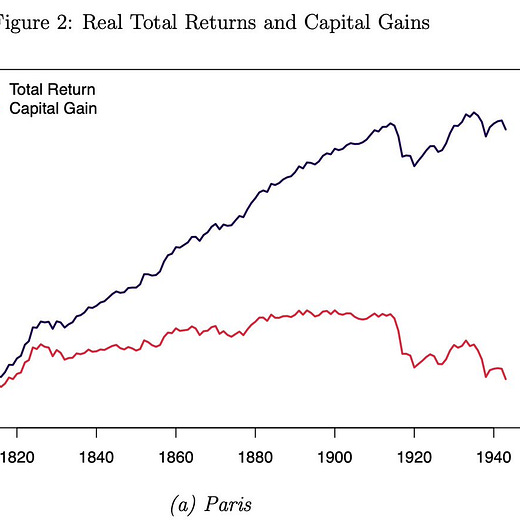
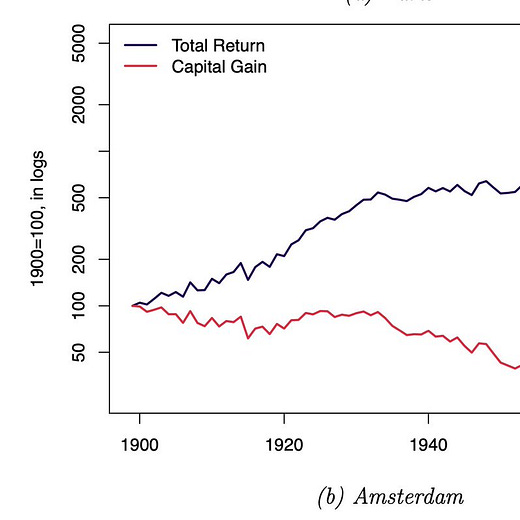
10:16 AM · Jan 22, 2021
8 Likes

Lionel Page@page_eco
New research finds that live streaming university lectures *increases* educational inequality (randomised experiment).
👇
➕ effect for top 20% students
➖ effect for bottom 20% students
In JEEA, by Cacault, @hildebrand_ch, Lucchetti, @mipellizzari
academic.oup.com/jeea/advance-a…

12:32 PM · Jan 21, 2021
56 Reposts · 122 Likes

David Baqaee@DBaqaee
We show that monetary policy can have sizable effects on productivity: monetary easing endogenously raises aggregate TFP and generates a positive "supply shock" that amplifies the effects of the positive "demand shock". 2/n
5:52 PM · Jan 18, 2021
3 Reposts · 18 Likes

Omar Wasow@owasow
Study: ”Great Migration increased support for Democrats and encouraged civil rights activism…Effects driven by both Black & white voters, and were stronger in counties with less discrimination and with larger working class & unionized white population.” papers.ssrn.com/sol3/Papers.cf…
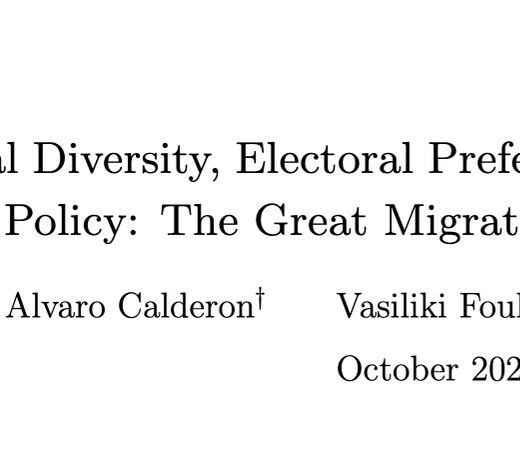
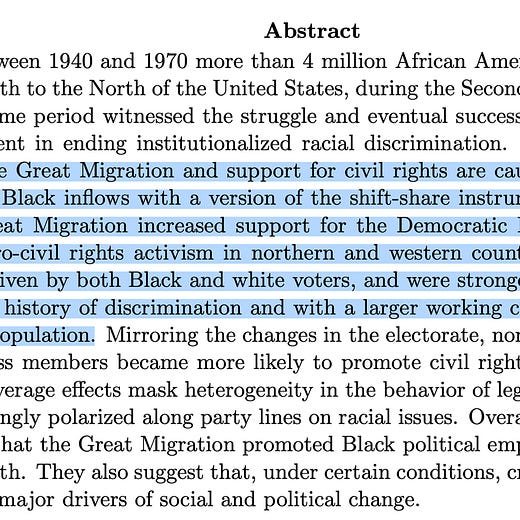
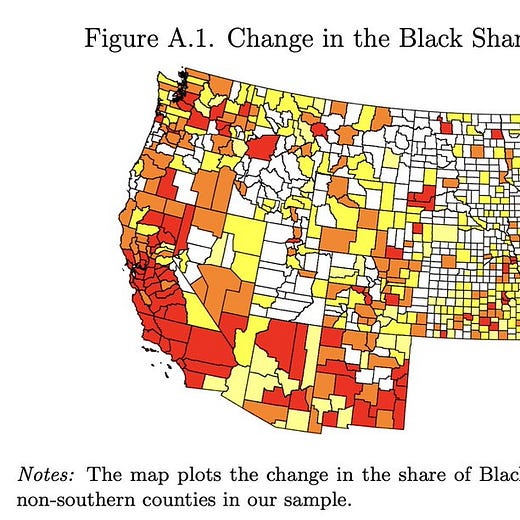
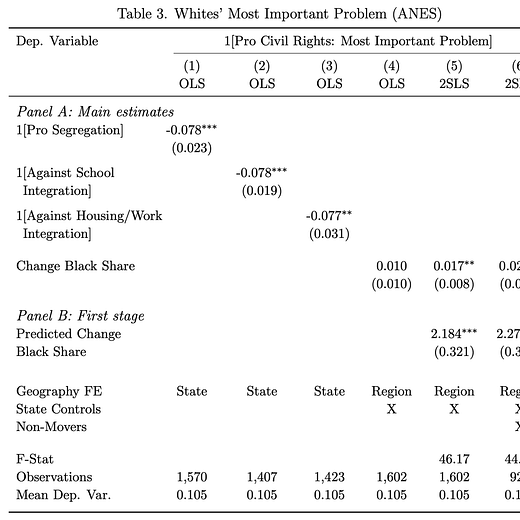
6:27 PM · Jan 23, 2021
27 Reposts · 87 Likes

Alexander Berger@albrgr
This paper by Dani Rodrik et al (drodrik.scholar.harvard.edu/files/dani-rod…) is basically a very scary elaboration of this Lant Pritchett blog post: cgdev.org/blog/why-are-g…
Global diffusion of capital and skill-intensive manufacturing reduces space for labor-intensive productivity growth paths.
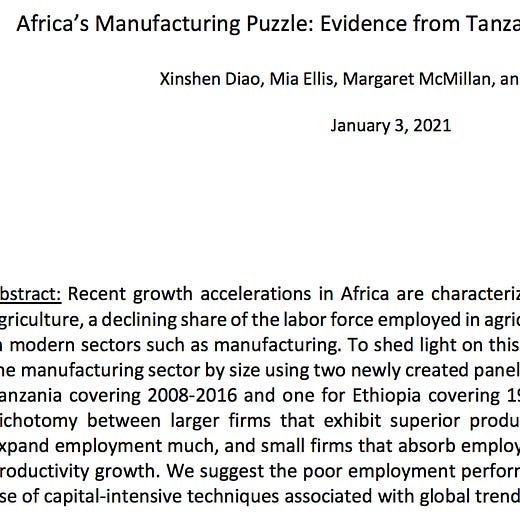
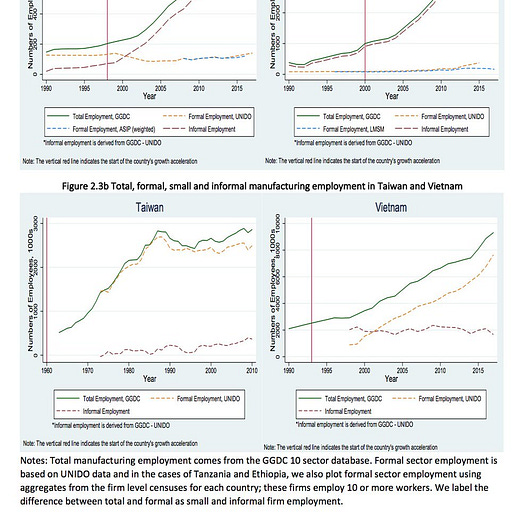
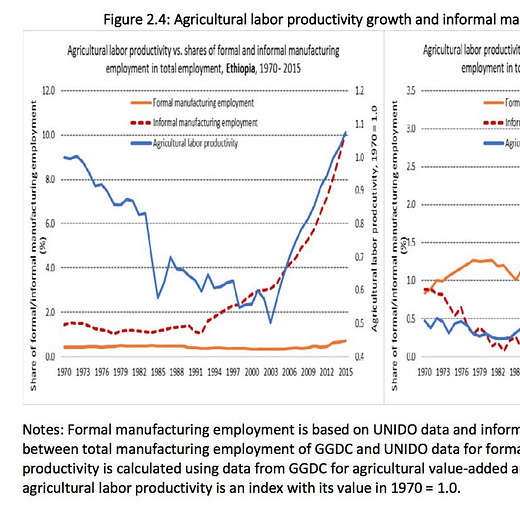
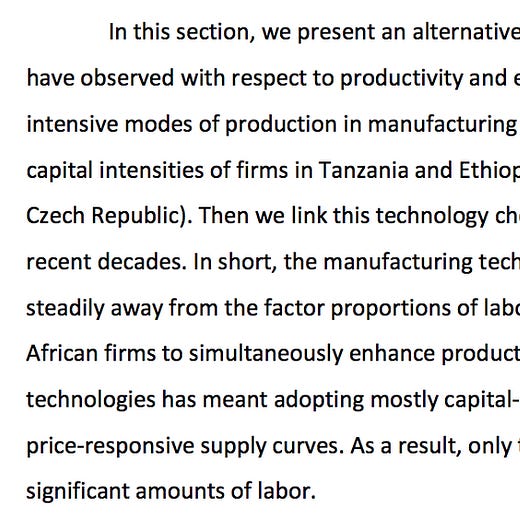
12:23 AM · Jan 17, 2021
9 Reposts · 45 Likes

Katherine Stapleton@KathAStapleton
Important new findings by De Vries, Kruse, Mensah, and @kunalsen5 in their paper 'Re-industrialization' at the @cepr_org #STEG conference that manufacturing employment shares have actually been *increasing* in many African countries in the 2010s
youtube.com/watch?v=0a9TXi…

9:15 AM · Jan 18, 2021
4 Reposts · 15 Likes

Sam Asher@thesamasher
In other words: if you are using night lights in time series, with place fixed effects (the most common use case!), you might be massively overestimating the impacts on GDP. 9/14
8:56 PM · Jan 21, 2021
6 Reposts · 25 Likes

Oren Ziv@zivoren
Is the Rent "Too (Damn) High?" @clwatsonecon (on the market!) and I evaluate the monopoly power of landowners. Markups are ~30% of rent. Local concentration is correlated with higher rent. Policies like zoning interact with market power. Link here: tinyurl.com/y3628n7j

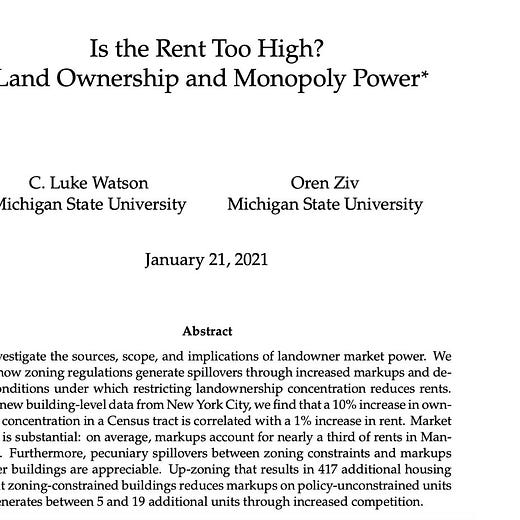
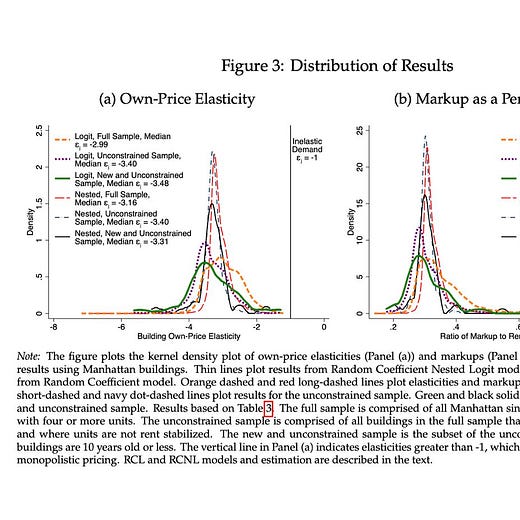
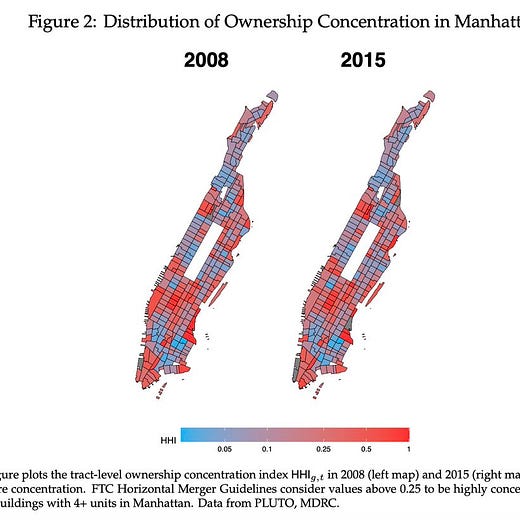
2:52 PM · Jan 22, 2021
15 Reposts · 46 Likes
^future tweets using anything like the “new!” image may be banned from the newsletter FWIW

Matthew Yglesias@mattyglesias
Incredibly detailed study of Chicago from @bocar_a, @dean_c_knox, @jonmummolo, and @romangrivera1 confirms the commonsense view that the racial identity of police officers is important to policing, and that more diverse forces would be better.
dropbox.com/s/yzo3b1knn4vf…

2:40 PM · Jan 22, 2021
41 Reposts · 182 Likes

Sergio Rebelo@SergioRebelo6
As income rises, households increase the quality of what they consume. This fosters inequality in labor earnings because, as we show in this paper with Nir, Arlene and Ben, high-quality goods are more intensive in skilled labor than low-quality goods.
buff.ly
3:34 AM · Jan 22, 2021
5 Reposts · 69 Likes

Tim Cason@Tim_Cason
Market experiments conducted at Purdue and published in the Journal of Political Economy nearly 60 years apart. @PurdueKrannert @JPolEcon doi.org/10.1086/712445 (1/3)
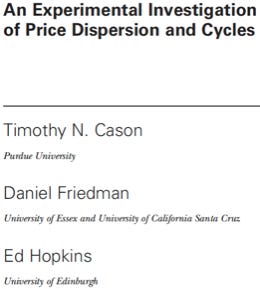
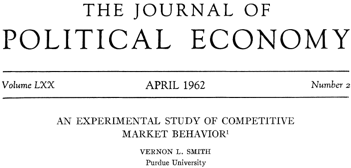
3:14 PM · Jan 18, 2021
3 Reposts · 39 Likes

Sandra Rozo@svrozo
JDE Forthcoming (our work with @juanf_vargas): we show that migration from Venezuela had strong electoral effects in Colombia. Mechanism: strategic electoral misinformation, whereby parties use migration to demonize the competitor's political agenda
sandravrozo.com/wp-content/upl…

10:24 PM · Jan 24, 2021
85 Reposts · 367 Likes

Alexander Berger@albrgr
The data work going into this paper on the impact of changes in very narrow categories of federal R&D funding on subsequent patent and entrepreneurship behavior by researchers is really impressive: nber.org/papers/w28160



11:12 PM · Jan 17, 2021
6 Reposts · 18 Likes

Igor Letina@IgorLetina
I am not sure if it is considered good manners to tweet about *other people's* papers, but I like this one so much, I'll do it anyway.
A thread about "Optimal Feedback in Contests" by Ely, Georgiadis, Khorasani and Rayo. And #Bitcoin.
1/12
@Jeffely @gjgeorgiadis #EconTwitter

7:07 PM · Jan 24, 2021
11 Reposts · 47 Likes
More: transmission of shocks in Eurozone; marriage dowries in India; wage gains for migrants to US; macro fluctuations and emergent behavior; R&D tax credits
Interesting discussions

Anthony Lee Zhang@AnthonyLeeZhang
Some more thoughts on "do research you enjoy" vs "follow this advice to write 3 AERs":
I had a strong negative reaction to advice to simply "do research you enjoy" in grad school and I think I've finally figured out my main issue with this advice
3:17 PM · Jan 23, 2021
40 Reposts · 345 Likes

Ryan Hill@RyanReedHill
I’ve been reflecting this past year since the job market on my decision to stick with academia over industry. One thing I think I can add to the conversation is my experience as a first-gen PhD having watched the ups and downs of my Dad’s (crazy!) career in industry. 1/N https://t.co/UL4erTHaqB

Anthony Lee Zhang @AnthonyLeeZhang
While I don't completely agree with the sentiment, I think the median person - even perhaps the median econ grad student - would be more impactful, richer, and happier in industry than in academia https://t.co/clQENuw4kG
11:28 PM · Jan 18, 2021
7 Reposts · 117 Likes

